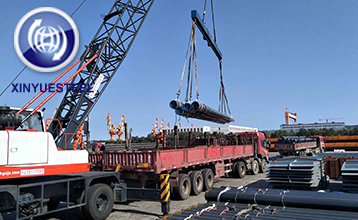Why coal prices fall all the way during the peak coal season
Aug. 28, 2020
Looking back at the end of July, people in the industry are discussing whether the coal price in August first fell and then rose, showing V-shaped fluctuations; or when coal prices rose crazily with the help of the coal peak season. Unexpected things happened. In August, the peak coal consumption season, coal prices fell all the way; even though there were signs of stabilization in the middle of the month, people thought that the peaks were turning, but they hesitated and continued to fall. At present, they have not bottomed out.
Analyzing the market operation throughout August is really surprising. In the context of high inventories and full hydropower, downstream users are not short of coal, and they are not in a hurry to pull transportation. There are few anchored ships in Bohai Rim ports, and power plants consume their own high inventory. Long-term coal has become the focus of transportation. No one is interested in coal in the market. Traders have failed to raise prices, showing a trend of decline. The actual trading price of thermal coal in the market with a calorific value of 5,500 kcal has dropped from RMB 573/ton at the beginning of the month to RMB 551/ton at present. Although the decline is not large, it is sufficient to show that this summer, coastal coal supply and transportation can meet the downstream coal demand. In summer, power plant inventories are high, transportation is unimpeded, and port coal prices remain at a median level.

First, coal storage in power plants continues to remain high.
At the beginning of August, whether it was a centralized power plant, a key power plant, or a coastal power plant, the coal storage was all at a high level, and the available days were as high as 20 days or more. The actual amount of coal stored in the major power plants was sufficient to cover the entire early and mid-August. In August, coastal power plants along the Yangtze River maintained a rigid pulling force on the north-south route and insisted on pulling long-term coal, which was sufficient to meet coal demand. In the last week of August, despite a certain amount of decrease in coal storage in central power plants and key power plants, there was almost no decrease in coal storage in coastal power plants. Users are full of confidence and the limited amount of coal purchased from northern ports has restricted the rise of market coal prices.
Secondly, the hydropower is full, and the thermal power is reduced.
In August, despite the plum blossoms in East China and the occurrence of hot and sultry weather, there was heavy rain in the south, and the main channel of "West-to-East Power Transmission" transmitted power for a long time with large loads, and the overall power transmission scale reached the largest ever. By mid-August, the daily consumption of coastal power plants once approached 700,000 tons, but with the increase of hydropower, the thermal power load dropped again. In the latter ten days, the daily consumption of coastal power plants dropped to 650,000-670,000 tons again. In August, the consumption of thermal coal was slow and the inventory remained high, resulting in a weak desire for power plants to purchase and replenish the inventory, which affected their enthusiasm for sending ships to pull shipments, and also affected the market activity, resulting in weak coal prices.
Thirdly, high-energy-consuming enterprises produced staggered production, and imported coal continued to flow in.
In August, during the second half of the "peak summer", energy-consuming industries such as cement and building materials continued to produce staggered peaks, and the industrial electricity load was not high, which largely affected the coal consumption of power plants. In addition, although imported coal is strictly controlled, users are still doing everything possible to import coal due to its superior cost performance. It is estimated that in August, my country's coal imports will still reach more than 25 million tons, and the continuous supply of imported coal will enter the coastal market, prompting power plants to passively pull domestic coal. Even though there were two consecutive road drop accidents on the Daqin line, the unloading volume and inventory of Bohai Rim ports decreased, and the coastal coal market still did not appear tense



